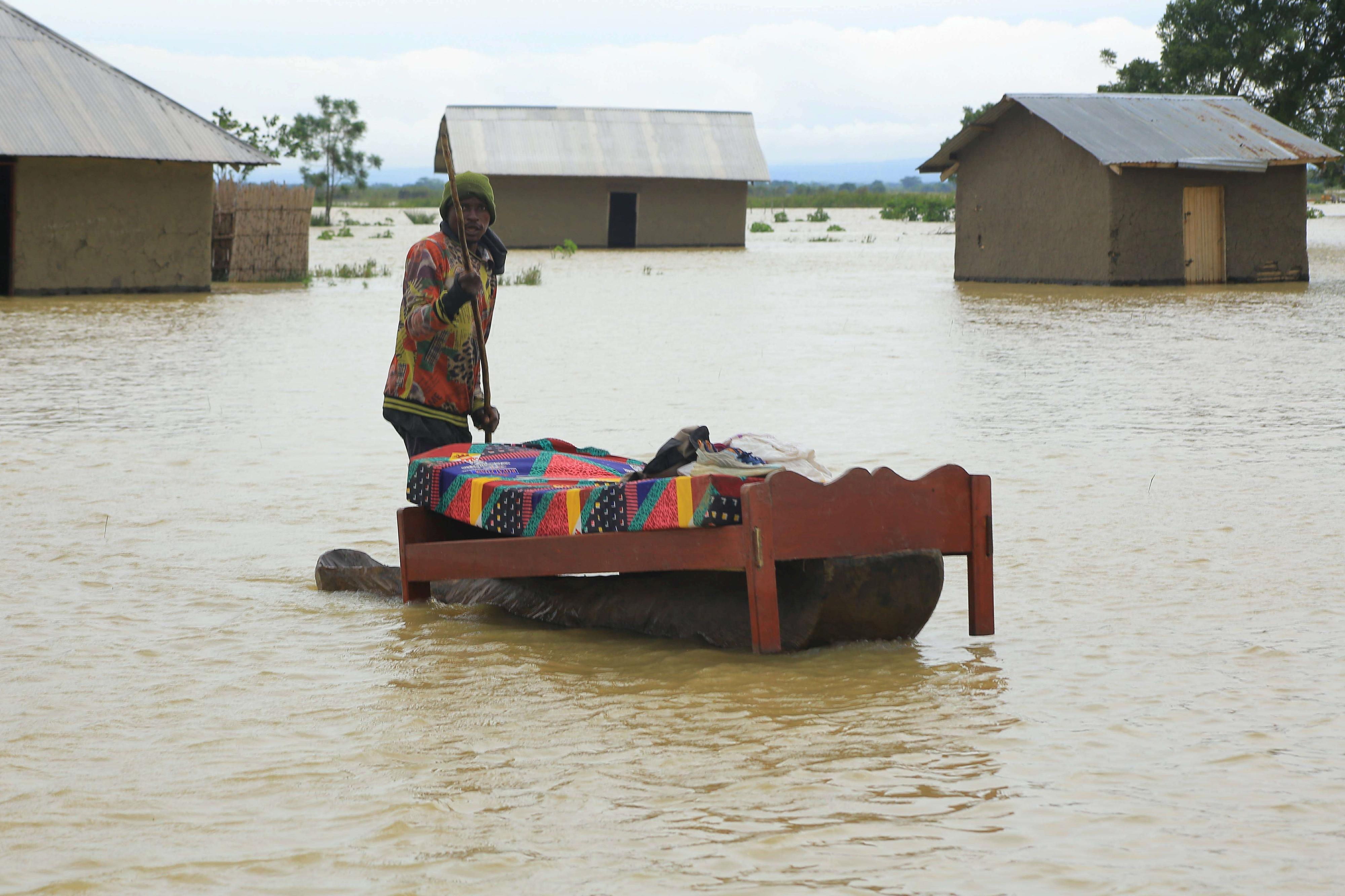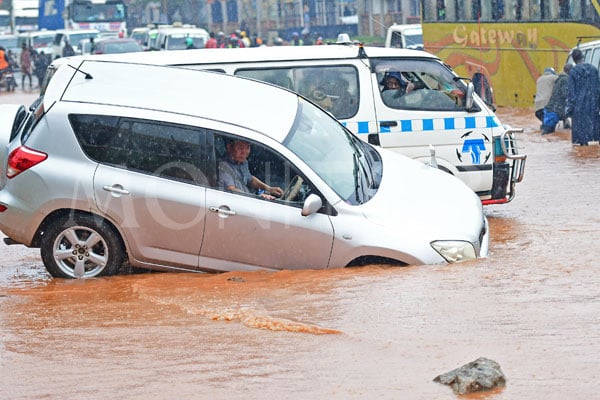Prime
Another wet season? Let’s get this together

A man rescues his household property using a canoe in Kyobe Village Bweramule Sub-county in Ntoroko District last week.
Photo/Alex Ashaba
What you need to know:
- Address the flooding crisis by investing in infrastructure, including storm drains, canals, and waterways, preserving wetlands, establishing early warning systems, engaging with communities, and adapting to climate change
Yesterday’s edition of this publication reported that the Uganda National Meteorological Authority (UNMA) weather experts had predicted near-average to above-average rainfall in several parts of the country in the coming months.
The rain patterns for September, October, November, and December (SOND) mean that Ugandans should brace themselves for another round of devastating floods, crop and property destruction, and even disease outbreaks. The memories of this year's disasters are still fresh, with lives lost, homes destroyed, and livelihoods ruined due to prolonged rainy seasons. Ntoroko District, especially, has borne the brunt of Mother Nature. Schools have closed, people have been left out in the cold and farmers are even requesting to graze in the wild re-serves because of devastating floods that have destroyed even fodder.
Yet even when we expect this every other season, we have done little to save Ugandans. For instance, the lack of adequate drainage systems and poor urban planning have exacerbated the flooding crisis both in urban and rural settings.
Needless to say, Uganda's wetlands are natural buffers against flooding, but they're being encroached upon by developers and farmers under the watch of responsible authorities. Forest cover, trees, and other vegetation that could mitigate flooding have been destroyed in the name of development and for domestic activities. And the buck must stop somewhere.
We propose that the government take steps to preserve and restore these vital ecosystems, which will help to absorb excess water and reduce the risk of flooding.
Secondly, a well-functioning early warning system is crucial in saving lives and property. The government should establish a robust system that provides timely alerts to communities at risk, enabling them to evacuate or take necessary precautions, and must be enforced. Similarly, the government should engage with local communities, educating them on flood risk management and involving them in the planning and implementation of mitigation measures.
At the policy level, the government must integrate climate change adaptation strategies into its planning and policymaking, including investing in climate-resilient infrastructure and promoting sustainable land use practices.
In a nutshell, the Ugandan government must act decisively to address the flooding crisis by investing in infrastructure, including storm drains, canals, and waterways, preserving wetlands, establishing early warning systems, engaging with communities, and adapting to climate change. The time to act is now, before the next disaster strikes.



